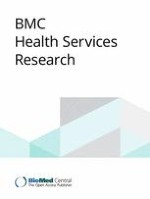Published in:

Open Access
01-07-2016 | Research
Assessing policy dialogues and the role of context: Liberian case study before and during the Ebola outbreak
Authors:
Juliet Nabyonga-Orem, Mesfin Gebrikidane, Aziza Mwisongo
Published in:
BMC Health Services Research
|
Special Issue 4/2016
Login to get access
Abstract
Background
In the last decade participatory approaches have gained prominence in policy-making, becoming the focus of good policy-making processes. Policy dialogue is recognised as an important aspect of policy-making among several interactive and innovative policy-making models applied in different contexts and sectors. Recently there has been emphasis on the quality of policy dialogue in terms of how it should be conducted to attain participation and inclusiveness. However, there is paucity of evidence on how the context influences policy dialogue, particularly participation of stakeholders. Liberia’s context, which is characterised as post-war, highly donor dependent and in recovery from the recent catastrophic Ebola outbreak, provides an opportunity to understand the influence of context on policy dialogue.
Methods
This was an exploratory study using qualitative methods. Key informant interviews were conducted using an interview guide. A total of 16 interviews were conducted, 12 at the national level and 4 at the sub national level. Data were analysed using inductive thematic content analysis.
Results
The respondents felt that the dialogues were a success and involved important stakeholders; however, there were concerns about the improper methodology and facilitation used to conduct them. Opinions among the respondents about the process of generating and selecting the themes for the dialogues were extremely divergent. Both before and during the Ebola outbreak, the context was instrumental in shaping the dialogues according to the issue of focus, requirements for participation and the decisions to be made. Policy dialogues have become a platform for policy discussions and decisions in Liberia. It is a process that is well recognised and appreciated and is highly attributed to the success of the negotiations during the Ebola outbreak.
Conclusions
To sustain and strengthen policy dialogues in future, there needs to be proper information sharing through diverse forums and avenues, stakeholders’ empowerment and competent facilitation. These will ensure that the process is credible and legitimate.